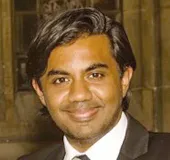
While globalisation was seen as a path to bring prosperity in the Western Hemisphere, UK who was championing the idea of the globalisation has officially exit from the European Union and disappointed its closest ally US, on its decision on the Chinese 5G network provider Huawei, which will undermine the US national security interest. The UK will allow Huawei 5G equipment in their network, limiting access to sensitive areas. “Nothing in this review affects this country’s ability to share highly-sensitive intelligence data over highly-secure networks both within the UK and our partners, including the Five Eyes,” explained Foreign Secretary Dominic Raab to the British Parliament. The problem of these technologies is whether the nations who acquire this equipment have the capabilities to separate and identify the core from the edge of the millimetre wave technology used in the 5G network. While the core is protected with encrypted algorithms for sensitive information sharing, will the Chinese break into the core area where sensitive national security information is communicated? The US identifies that Huawei, a company established with a PLA affiliation which carries the largest patents for the 5G technologies than its competitors will have the advantage to carry out espionage for the Chinese government and have full control of the network.
“Can you imagine Reagan and Thatcher having a conversation in the 1980s saying: Let’s have the KGB build our telecommunications systems because they’re giving us a great discount,” commented Matthew Pottinger National Security Advisor of USA a few weeks ago at the Raisina Dialogue in New Delhi. The discount offered by Huawei has won every stage of its mobile network expansion in developing nations like Sri Lanka. During the last decade, Huawei has become the leading network equipment provider due to its attractive price which sometimes offers cushion fees to developing nations to grab the tender. Sri Lanka is a clear victim in this regard. Recently interviewing a Huawei official by this author who was shocked to hear the confidence of the officer of wining the 5G network tender due to the Huawei’s footprint in the Island, saying “Sri Lanka has missed much opportunity, look at the Maldives who is now on 5G network with us, we gave proposal to Sri Lanka before the Maldives.” India is undecided on the idea of the Huawei 5G network similar to most East Asian countries. It is essential to understand and asses the national security concern on long term before acquiring such technology specifically a viewpoint from the signals intelligence officers of the nation is essential.
During the last decade, Huawei has become the leading network equipment provider due to its attractive price which sometimes offers cushion fees to developing nations to grab the tender. Sri Lanka is a clear victim in this regard.
As these events unfold three scholars including a Harvard professor in the US was charged being foreign agents of China. Since 2011, this academic has been part of the Wuhan University of Technology as a scientist receiving large sums of funds from China as part of the ‘Thousand Talents Plan’. It is a programme that has flagged national security concern by the US for stealing and conducting espionage by the Chinese. The other researchers accused of being part of the PLA working at the Boston University robotics and a Cancer researcher who was found with 21 vials of biological samples in his bag at the Boston Logan International Airport. Michael Pillsbury in his book The Hundred-year Marathon identify “for decades the US government has freely handed over sensitive information, technology, military know-how, intelligence, and expert advice to the Chinese, so much has been provided for so long that Congress complained in 2005 that there is no full accounting, and what we haven’t given the Chinese they have stolen.” At present day, the US will take full account, and will want other nations to respect their decision in being cautious of the Chinese so-called unidentified espionage. Decision UK has taken and what other nations will follow will have a drastic impact on the new world order. The liberal order is threatened by these incidents and decisions made by governments in the developed and the developing world.
Governments should adopt certain processes and values to certify the critical infrastructure projects of the Chinese. The Blue Dot Network (BDN) — a certification programme which sets international standards is the right response to the Chinese BRI projects — supports recipient nations, ensuring that the aid they get is an effective and sustainable response to their needs. Making it more transparent and will ensure a better process when dealing with critical infrastructure. This was a point made by Sri Lankan President Gotabaya Rajapaksa on leasing out national assets during his election. The president clearly emphasised that “Sri Lanka doesn’t wish to be engaged in the major power game taking place in the India Ocean.” The great Leo Tolstoy writes that one wouldn’t need to be interested in war for war to be interested in them. In the same manner, the major powers are already in the Indian Ocean and Sri Lanka is a part of the major power game despite its unwillingness to be part of it. Three top officials — the Minister of Foreign Affairs of Russia, Sergey Lavrov; Wang Yi, the Chinese Foreign Minister; Alice Wells, the US Assistant Secretary of State; and Ajit Doval, National Security Advisor — had been in Sri Lanka at the same time last month, not to speak of collective interest but to speak of their own national interest. As Henry Kissinger refers to one leader, Klement von Metternich’s intent to maintain stable international relations required leaders to acknowledge the true interests of all actors, however, realpolitik of 19th century Western Europe saw nations focused on their own interest ignoring others. While US-UK and the like-minded liberal intelligence platform will go through significant changes, will Sri Lanka and UK strategically positioned Islands facing the two oceans maintain stability in their vicinity to preserve the liberal order or have they drifted towards China. For Sri Lanka, although “There is a need to decouple security cooperation from economic relations in small power-great power engagement,” do we have the capacity to decouple while unidentified tactics has already coupled security and economic relations?
Huawei set for limited role in UK 5G networks.
https://www.orfonline.org/raisina-dialogue/
US charges three researchers with lying about links to China.
Michelin Guide to infrastructure in Asia.
Kissinger H., World Order ‘Talented strategist Klement von Metternich was guided by the motto that to maintain stable international relations you needed to acknowledge the true interests of all actors and not just those of your own’
Wignaraja G., Grappling with Great Power Rivalries: Reflections on Sri Lanka’s Engagement with the United States and China, SWP Working Paper.
The views expressed above belong to the author(s). ORF research and analyses now available on Telegram! Click here to access our curated content — blogs, longforms and interviews.

